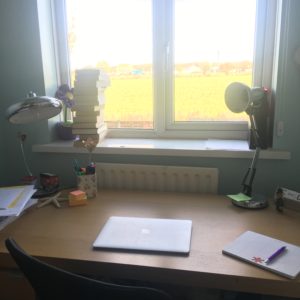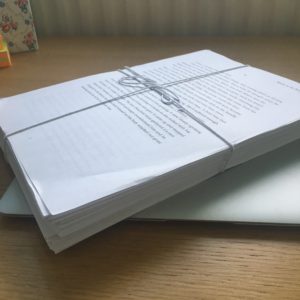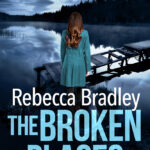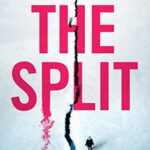 Yes, I promised this last week and here it is, my very own First Draft Q&A post. Please don’t expect anything different to what you have already seen. Like everyone else that has passed through the First Draft hot seat, this shows we all work differently, but we all strive to complete that first draft.
Yes, I promised this last week and here it is, my very own First Draft Q&A post. Please don’t expect anything different to what you have already seen. Like everyone else that has passed through the First Draft hot seat, this shows we all work differently, but we all strive to complete that first draft.
I’m afraid I’m not witty, as some have been – as you already know from visiting here before. I tend to plug away at things until I get them the way I want them to be. But, this is me.
But, this is me.
I am a retired police detective with 16 years service. 8 years in uniform and 8 years in a specialist department. I hope that this brings some authenticity to my writing. I live in North Nottinghamshire with my family which includes two cockapoos, Alfie and Lola, who keep me company when I write. I’ve released two novels, Shallow Waters and Made to be Broken and a novella prequel, Three Weeks Dead. All set in Nottingham.
When you decide to write something new, what is the first thing you do?
I see how long I can hold the idea in my head. If it doesn’t stay in there of its own accord, then it’s probably not the right idea. And when I say this, the idea doesn’t come to me when it’s time to start a new project, it comes to me when I’m agonising over a book I’m already working on. If the idea holds, then I write a brief couple of lines down (elevator pitch) and wait until I have the actual time to work on it.
Do you have a set routine approaching it?
When I first started writing, so, with my debut, Shallow Waters, there was no routine. I was a classic pantser. I sat down and typed whatever came into my head that day. It took me an age to write, working that way. After that experience, I decided I need to work smarter and I started planning. So, now I write a lengthy synopsis so I can see where I’m going.
Pen and paper or straight to the keyboard?
Pen and notebook first, scribbling ideas down and then I move to the keyboard for the synopsis. The notebook is always in play though as I go along. I find if I get stuck, working with a pen in my hands is helpful, even if I’m not making much sense, it frees up my mind and knots become untangled.
How important is research to you?
I like facts to be correct because if they’re not then the reader is going to be thrown out of the story. We’ve all been there where we shake our heads, saying that’s not right, that would never happen. Now, I believe in it being fiction and we should suspend our disbelief, so it also depends on the context of the story you’re reading or writing. For my Hannah Robbins series, I openly say I’m an ex-detective, so I can’t then go and have a glaringly obvious procedural error.
How do you go about researching?
As I haven’t been working for a couple of years now, I do have to check procedures with colleagues because these things move so quickly. If it’s not police procedure I’m needing to know about, I’ll initially check it on Google, and then see if I can find a real human being to talk to as I’m better at taking information in this way.
How do you store everything; ideas, research, images that catch your eye?
Bookmarks if Googling and folders within my laptop for documents and images. I also like to print thing off and keep them in an actual folder as I also take information in better (or retain it better) if I’m reading it off a page than off a computer screen.
Tell us how that first draft takes shape?
I like to write quite linearly so I can see how my characters are changing and progressing, so I start typing and keep going. When I get stuck, I’ll stop working and give my mind time to try and work through the plot issues, though not too long or I’d never get anything written! But yes, I find lots of answers do come to me when I’m showering or generally doodling in notebooks.
Are there any rituals you have to do or items you must have with you while writing that draft?
Tea, lots of tea. My desk also has to be tidy. I can’t work if my desk is a mess. It drives me insane. I like to spread myself out, notebooks and pens and I can’t do this if there is stuff all over it. So I find I have to keep having tidy up sessions as I go along!
Does the outside world exist or are you lost to us for a period of time as the magic works?
It definitely exists. I have a family and two dogs. All of whom remind me regularly that they exist. Much as I’d like them not to – remind me they exist, not actually not exist! I like my own space and time and though they are very good about giving it to me, they are also very good at reminding me I need to rest.
What does your workspace look like?
Like this… I also work in Costa Coffee when I take my son to his drama classes on a Saturday and in bed in an evening.

Edit as you go or just keep getting words out?
I just keep getting words out. Editing is for later.
I see many writers counting words in a day. Word counter or other method of keeping track of progression?
I like to keep a track of how many words I’m writing. I prefer to write about 1,000 a day. Sometimes I manage, sometimes I do more, sometimes life gets in the way. It’s not a perfect system.
So, that first draft is down. Roughly how long did it take? And what shape is it in?
Ha! Now, that’s a difficult question. I’m still practicing and honing this one. But, we are talking first drafts and not finalised manuscripts aren’t we? My first one, Shallow Waters took a long time, about 8 months for the first draft. Book two, Made to be Broken, about 5 months for the first draft. This standalone I’m currently writing should take me 3 months.
 In what format do you like to read it through, ereader, paper or the computer screen?
In what format do you like to read it through, ereader, paper or the computer screen?
Paper and ereader. You pick up different errors on the different formats. I do like scribbling all over the paper though when it’s printed out.
What happens now that first draft is done?
I do lots and lots of scribbling – on the printed version and start the revisions process.
You can find me on Facebook | Twitter | Amazon
Three Weeks Dead

Three Weeks Dead
How far would you go if someone took your wife?
Especially, if you buried her a week ago.
When Jason Wells is faced with this scenario, he is confronted with the prospect of committing a crime that will have far-reaching consequences.
Can young DC Sally Poynter get through to him before he crosses that line, or does a desperate husband prove to be the case she won’t ever forget?
This is a DC Sally Poynter novella, and the prequel to Shallow Waters, the first in the DI Hannah Robbins series.



I think we all get faster with those first drafts the more we right.
I write linearly as well. I know some people jump around, but I would confuse myself!
Very fun you interviewed yourself!
How lovely to hear your own answers, Rebecca. You do seem to be very tidy and organised, which is what I aspire to be. It seems to work better for my professional life than my creative one, for some reason!
I like the way you felt that you had to develop more of a system for the second book so that it wouldn’t take as long (although 8 months doesn’t sound very long to me, the compulsive procrastinator). You seem to be learning a lot from book to book.
Fantastic to learn a bit more about the way you do things, Rebecca! And I love your work space! I think you hit on something important, too: if an idea doesn’t stay with you – doesn’t ask you to pay attention to it – it’s probably not going to keep the reader engaged, and probably isn’t the best choice. I really like that point you made. Thank you for this feature, and I wish you much success.
Well I’ve been really looking forward to seeing your first draft process, mainly because I know how much nagging I’ve subjected you to while you were writing Made To Be Broken, but also to understand how you manage with also fitting in around your family and home life so this has been really interesting.
It’s also nice to see where the magic happens! I genuinely wish you every success for the future, and I can’t wait to read the new stand alone xx
It’s lovely to read your responses to you Q&As Rebecca
I hear you on the copious amounts of tea – my new mug actually holds two normal sized mugs’ worth 🙂
Looking forward to hearing more about your standalone, too!